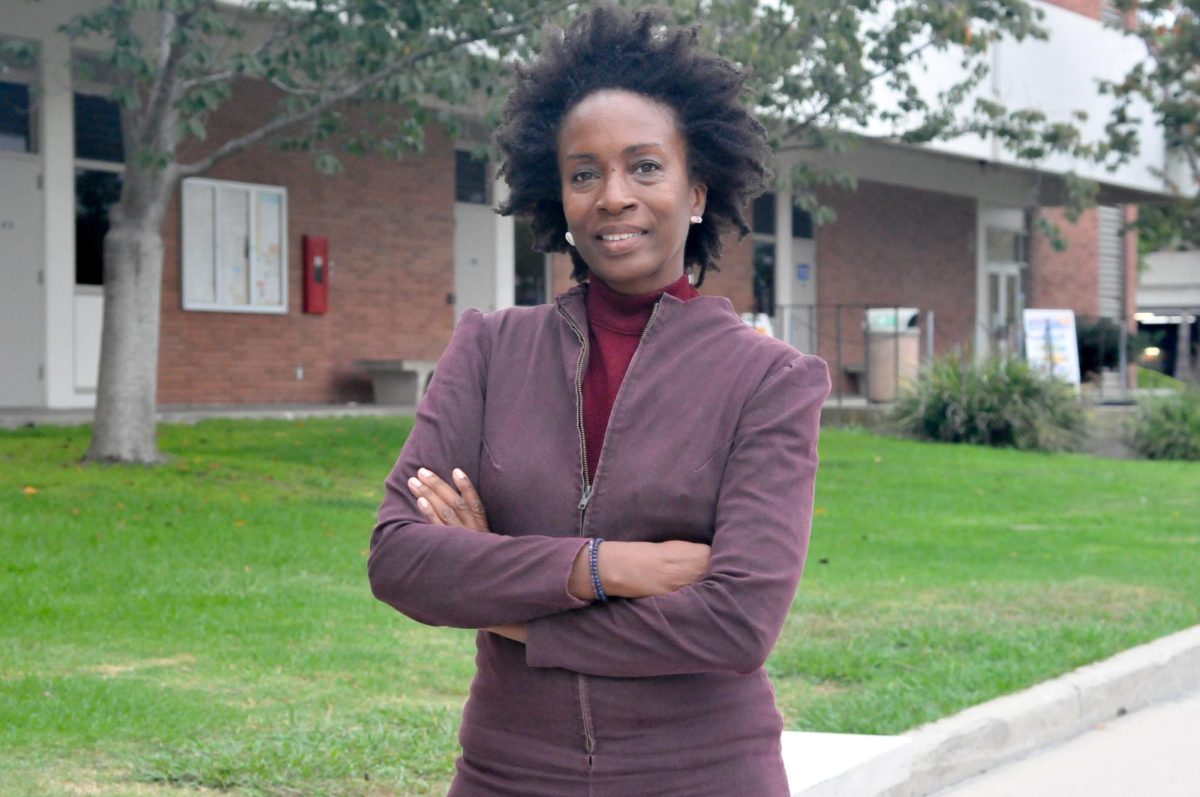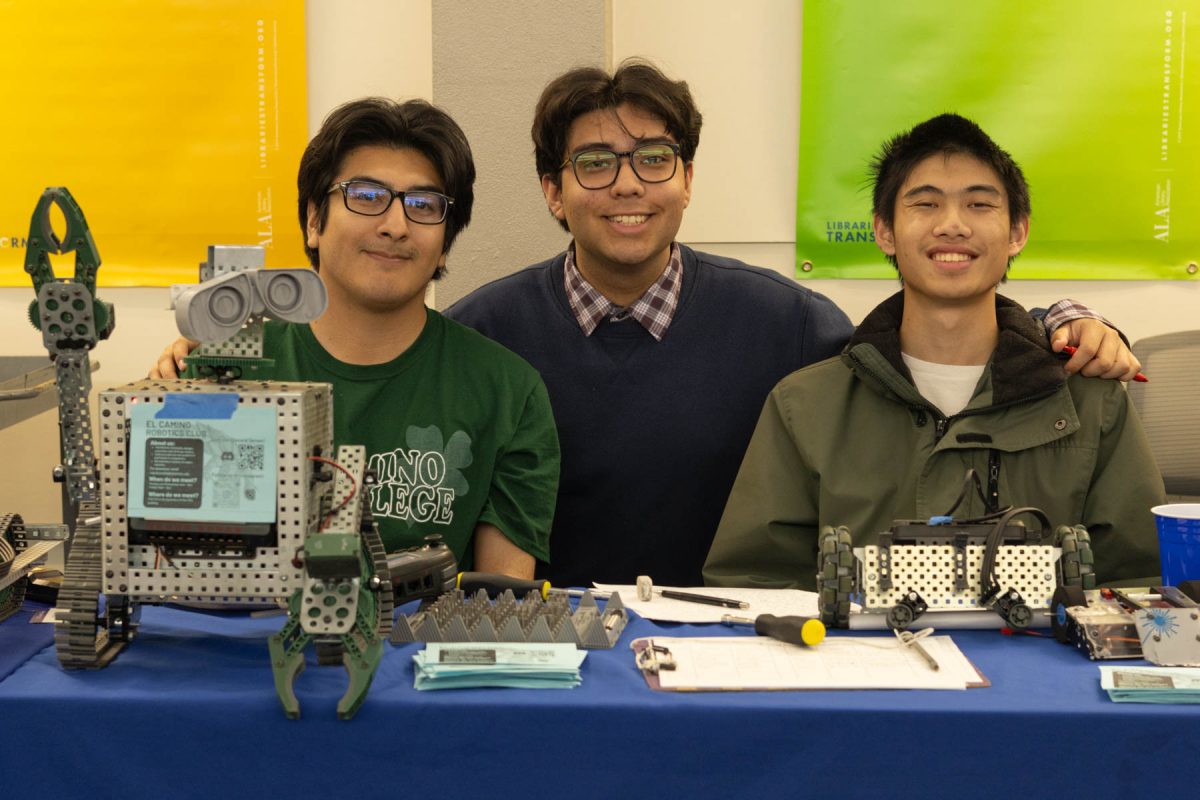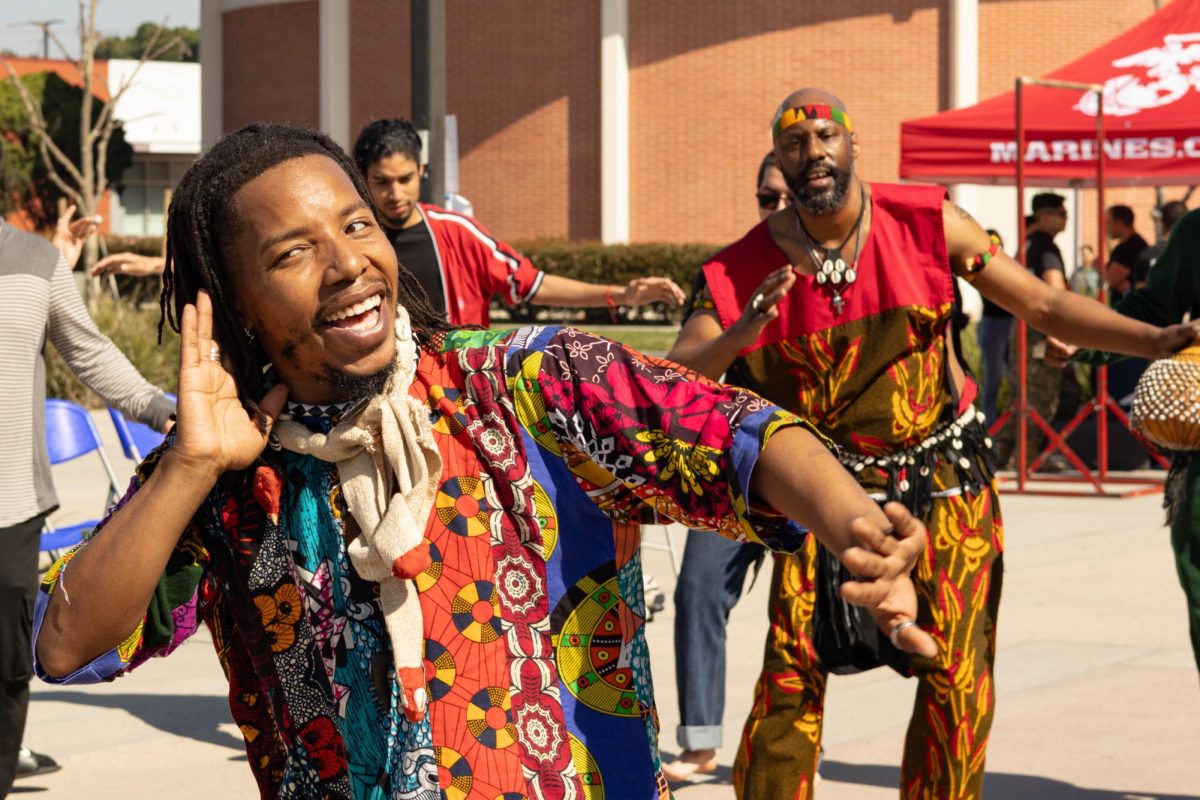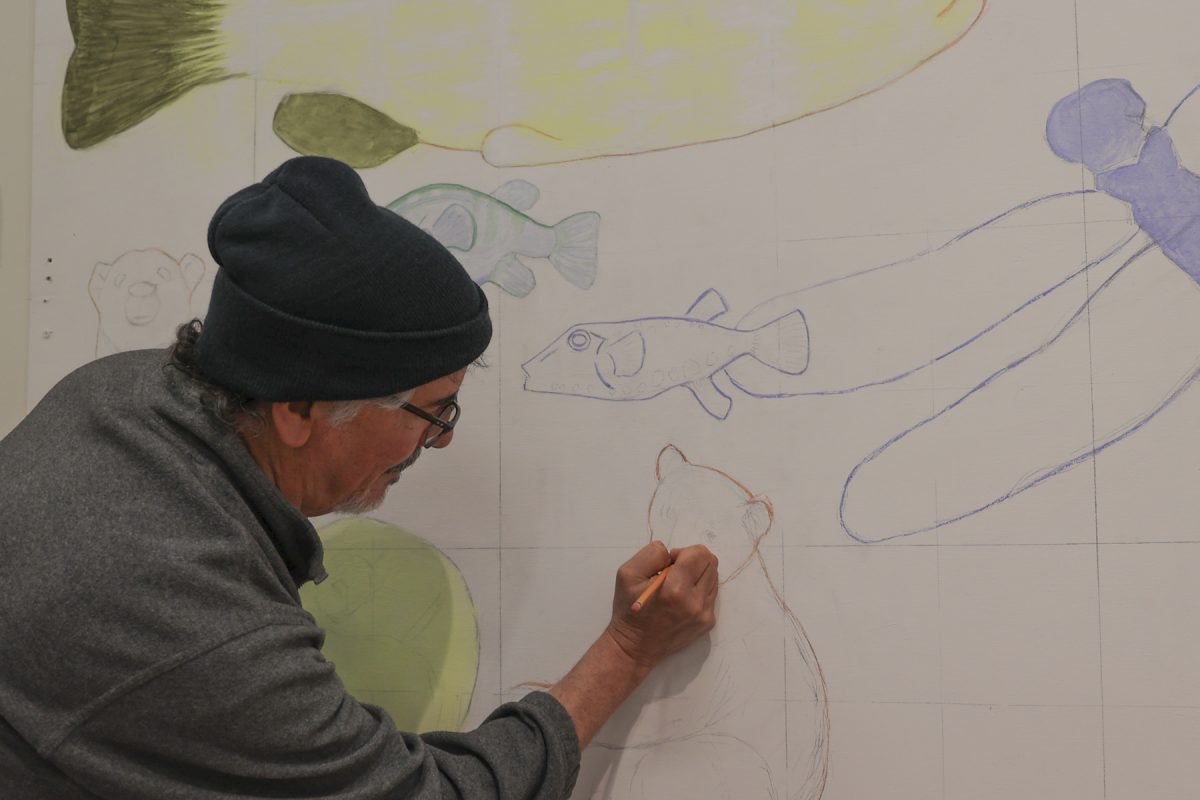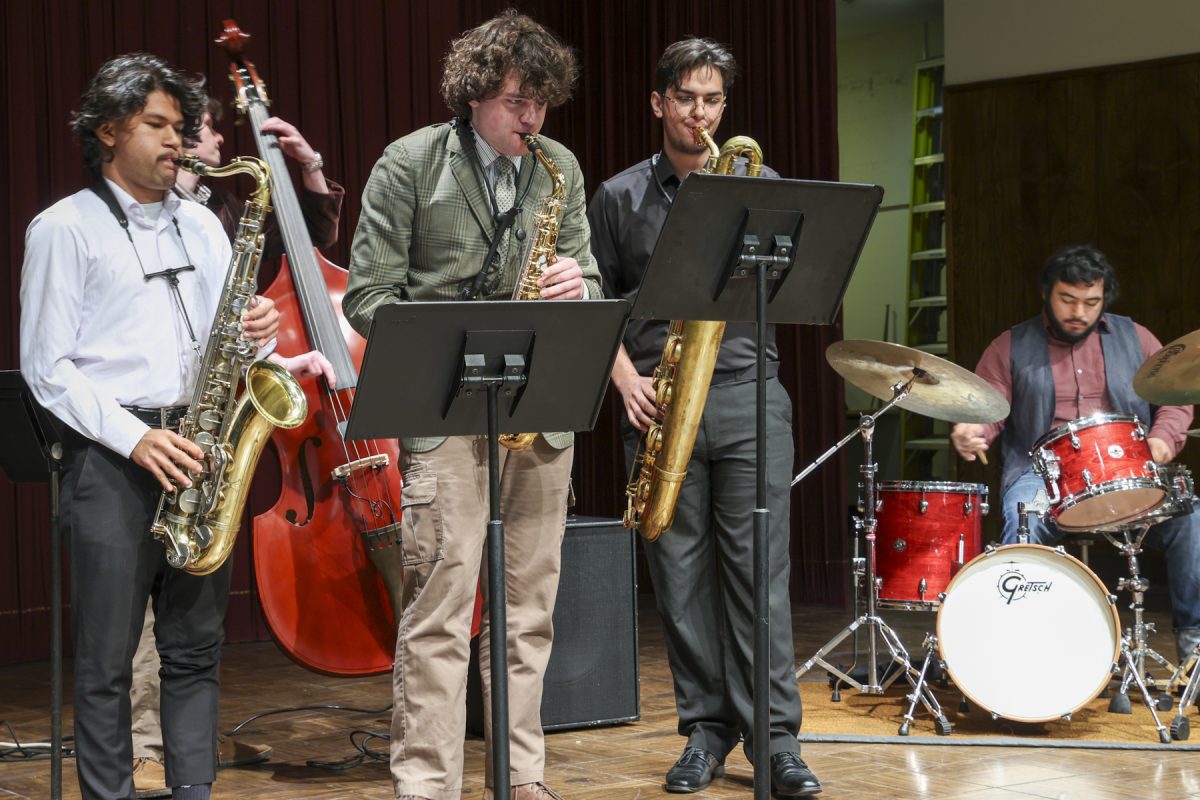Rays of sunshine scatter through the sheets of bubble rap diffusing the view inside her car window.
The quiet tree-lined street is calm and peaceful as dawn arrives. Shivers ripple through her body, while she lays in fetal position underneath the steering wheel.
Soreness and pain tug her neck.
Her eyes flicker and she stares at the black ceiling interior of her car.
It is a brand new day.
El Camino College student Benita Elliot is currently experiencing homelessness in the South Bay. Elliot has come a long way from the East Coast to living in the sunny climate of Los Angeles.
She has lived in a four-walled home to a four-wheeled car.
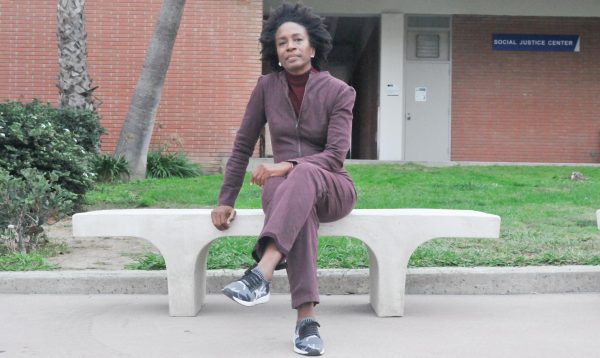
Elliot grew up in a nurturing, and altruistic church community in the East Coast. She is rooted in music, arts and city life. An artistic upbringing inspired her to hone her passion in the theater and arts.
Throughout her career, she moved to New York City to pursue more creative endeavors. Later, she relocated to Los Angeles and soon realized how difficult it was to land a job.
“I’m a very mindful, ethical person, I do my homework,” Elliot said. “Out here, finding work has been a darn near impossibility.”
To add, she has experienced racism while applying for jobs in L.A.
“It makes it incredibly challenging and traumatizing to be constantly discriminated against in terms of equity and opportunity,” she said. “Again, it’s traumatizing when you need to support and take care of yourself and you’re denied opportunities to work.”
Elliot said the systematic racism creates a vicious cycle that is difficult to recover from.
“That contributes to this downward spiral where you eventually can’t keep up because you start falling back and there’s only so far you can fall before the bottom drops down,” she said.
When struggling to pay rent, Elliot decided to seek assistance from Los Angeles County. She first reached out to the Los Angeles Homeless Services Authority she said.
She later qualified for initiative Measure H, which aims in providing shelter and permanent rental subsidies for people experiencing homelessness.
In addition, she qualified for initiative Measure HHH, a bond meant to develop and acquire housing, including affordable housing, interim housing, restrooms, showers, health clinics, storage facilities and navigation centers.
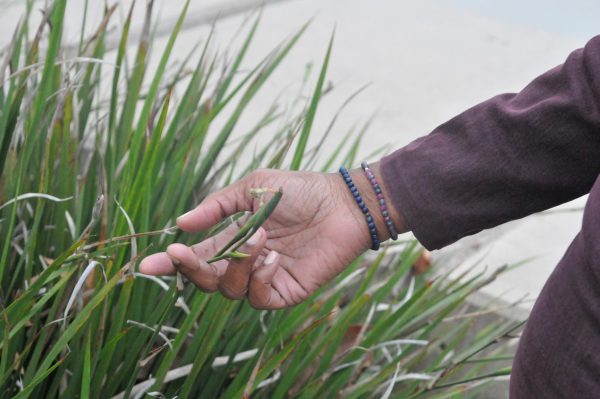
Elliot’s landlord helped extend her ability to stay and allowed her to pay whatever she could afford, until she was able to acquire financial assistance.
LAHSA negotiated to pay the remaining balance of Elliots’ rent, but from March until May of 2018, she did not receive the funds.
“By the time they finally agreed to pay the $5,000, plus one month’s rent, my landlord refused the payment and I lost my home,” Elliot said. “LAHSA withheld the funds.”
According to California Community Colleges, students have a pressing need for affordable housing.
Recent studies show that 60% of student survey participants reported experiencing housing insecurity and 19% reported experiencing homelessness.
After Elliot’s eviction, she received a call from Volunteers of America, an organization that provides affordable housing, after LAHSA failed to meet the deadline to assist her.
“Volunteers of America was toggling between me and the landlord giving different versions and they never helped me,” she said.
On lockout day, which is when changing of locks occur on a property to prevent access, Elliot immediately appointed the Homeless Outreach Program Integrated Care System, a homeless housing organization funded by LAHSA, to seek assistance.
HOPICS communicated with LAHSA, initially informing Elliot they would pay the money withheld from her, since her engagement with LAHSA.
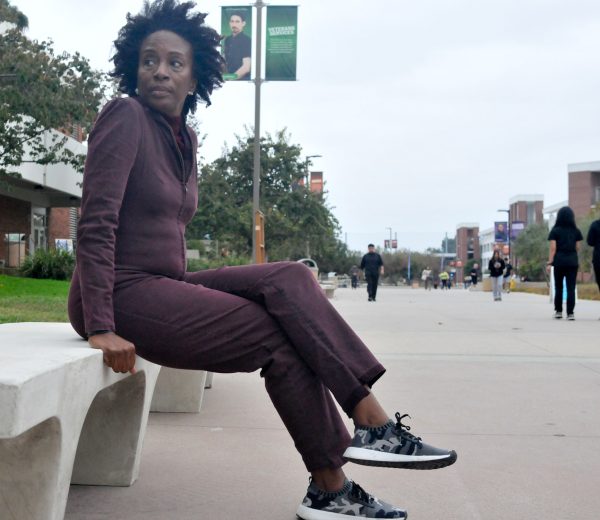
After, they attempted to contact the landlord, and he did not answer. This was viewed as a sign of refusal, and Elliot never received the funds, she said.
From 2018 to present day, Elliot has been couch-surfing rented spaces and lives in her car to make ends meet.
Throughout her housing experience, she has dealt with inconsiderate neighbors and people asking her for sexual favors in exchange for housing, which she declined.
“People will say things to me ‘you do massages, right? Can I take a shower with you? You seem uptight, let me give you a massage’ things like that have actually been said to me,” she said.
According to The Guardian, California’s housing crisis is the worst in the US.
Experts and advocates say that the lack of affordable housing is a primary cause of homelessness in the Golden state.
Elliot attempted to reach out to several governmental officials, including Gov. Gavin Newsom’s office, Lindsay Horvat, an L.A. County supervisor for District 3 and Holly J. Mitchell, an L.A. County supervisor for District 2.
She has yet to receive a response from them, including the district attorney’s office.
“I even went to the D.A’s, I reported this has happened to me,” Elliot said. “I’ve just gone all over and people placate, they dismiss, they ignore, nobody follows up, you don’t hear anything.”
The Basic Needs Center at ECC is a resource to assist those in need. The program provides access to free and low-cost basic needs services, and support for currently enrolled students and community members.
One service they offer is referring students to housing agencies.
“We have a referral process,” Basic Needs Center Coordinator Sharonda Barksdale said. “We work closely with a few of the bigger agencies in the Spot 8 area.
ECC is part of Service Planning Area 8, serving the South Bay and Harbor area. Homelessness across the ECC campus has changed throughout the years.
“When I started back in 2018, most of the students that I encountered now that were homeless were 18, 19 year olds fresh out of highschool,” Barksdale said. “Post-pandemic, the face of homelessness changed in my opinion, began to see more older adults, more of our returning students.”
The ECC Police Department has dealt with homeless people on campus, some of them camped out at Alondra Park or in the nearby channel.
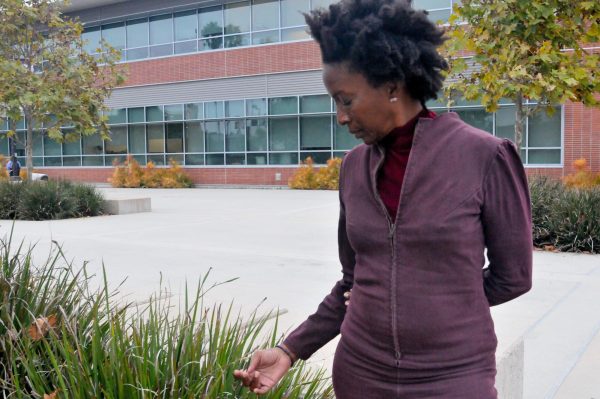
“I don’t know who’s a homeless person or not,” ECCPD police officer Erika Solorzano said. “The homeless persons we encounter are non-students.”
Barksdale said many homeless students are not getting the necessities they need.
“We have probably the least amount of resources for homelessness,” Barksdale added.
Another service the Basic Needs Center offers is the Warrior Food Pantry, which serves food, snacks, drinks, fresh produce, and personal care items, including deodorant, shampoo, conditioner and body wash.
Based on data from the first three weeks of the fall of the 2024 semester, the Warrior Pantry served 1,724 students, averaging 150 students and 30 community members per day, Student Services Specialist for Financial Aid & Basic Needs Jocelyn Rivera said.
In order to receive funds from LA County, you need to have mental health issues, exposure to domestic violence, or an addiction problem, Elliot said.
“They will put people up in a motel if you claim to be domestically violated or domestic violent victim,” Elliot said. “They also will require that you will be in some sort of rehab program either through drug rehabilitation, alcohol rehabilitation, or have some sort of mental infliction in order to get actual housing.”
Elliot has experienced inadequate housing in LA County.
“It [Elliot’s motel] was roach infested. There was mold. There were flies. There were ant infestations, and that’s how much I had to pay to be there” she said. “I reported them to the city. Nothing happened.”
The city is making money off the homeless crisis, Elliot said.
“They’re siphoning off the funding for homelessness into administrative costs,” she added. “It’s a horror show.”
Jackie Contreras, a director for the Los Angeles County Department of Public Social Services, manages the $5 billion dollar budget for solving homelessness, and other social efforts. As of 2024, her salary is $407,018.
“The disparity in what people are paid is staggering,” Elliot said. “It’s criminal.”
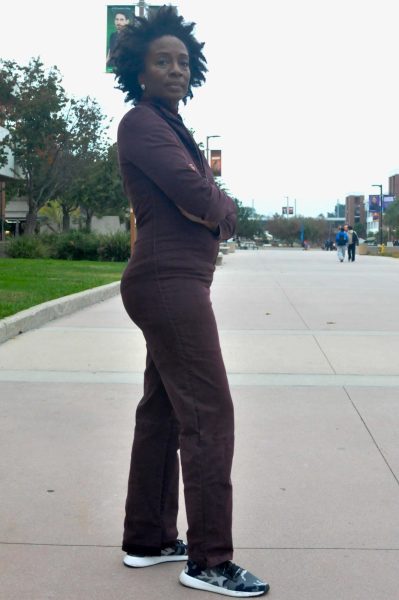
This economic difference is something that negatively impacts homeless people everyday.
“I think you all are trying to kill us,” Elliot added.
Navigating the system has been challenging for Elliot. It is because of her skills she has been able to navigate her situation, but many people don’t have that, she said.
“The metaphor I came up with was it’s like crossing the Mojave on foot with two cats and a sewing machine,” Elliot said.
The two cats, which have passed away, represent her family.
She adds the sewing machine represents her life-long passion for sewing, how she always has it with her, and how it is an extension of her identity. The Mojave desert is a symbol that represents the long, gruesome journey one might have to take if walked barefoot.
This personalized metaphor serves as a hopeful reminder to Elliot that in times of difficulty, she must and can persevere through the environmental challenges she faces.
“El Camino has saved my life,” she said. “I feel this place is unlike any school experience that I’ve had.”
She said that the people at ECC have been welcoming and helpful.
Daily duties of being a college student and doing work study at ECC resume for Elliot. She currently lives in her car and is working on getting out of being homeless.
“Trust me, I find things that I enjoy doing,” she said.
Elliot believes it is important to continue fighting for better policies and programs for homelessness and to hold our elected leaders accountable.
“We’re up against a beast and the beast is winning and we’re losing,” Elliott said.


